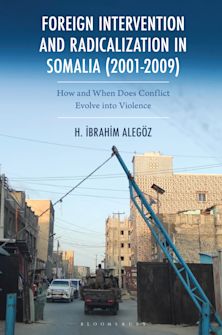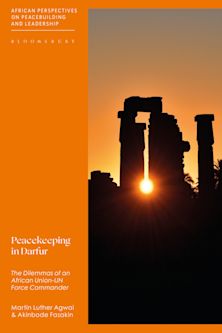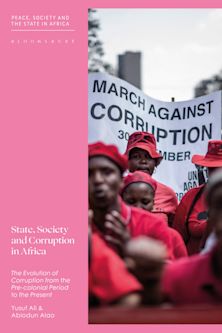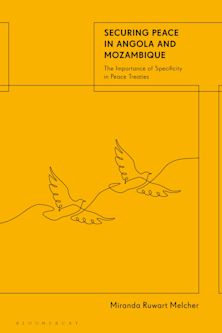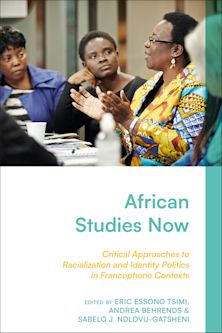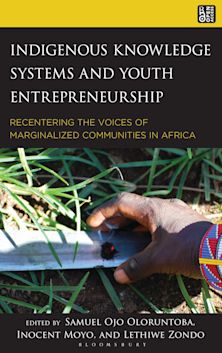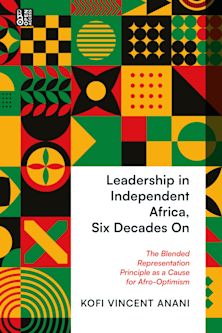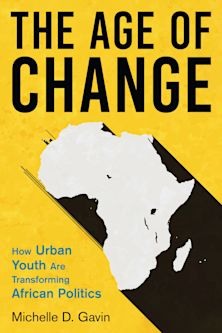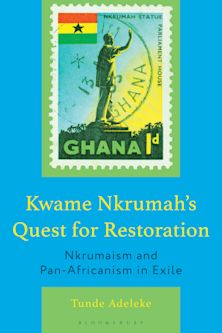Right to Development and Illicit Financial Flows from Africa
Dynamics, Perspectives, and Prospects
Right to Development and Illicit Financial Flows from Africa
Dynamics, Perspectives, and Prospects
This product is usually dispatched within 1 week
- Delivery and returns info
-
Free US delivery on orders $35 or over
Description
Gerard Emmanuel Kamdem Kamga, Serges Djoyou Kamga, and Arnold Kwesiga explore a relatively new phenomenon, namely referred to as illicit financial flows, that aim to impoverish the African continent and prevent its economic development. There is a direct relationship between illicit financial flows and failed initiatives to realize the right to development on the continent. For instance, in 2016, Africa received $41 billion towards public development while $50 billion left the continent through illicit financial flows. The gap between recent economic achievements on the continent and its state of generalized underdevelopment coupled with rampant poverty, corruption, prolonged economic crisis, and political instabilities signals an issue with resource allocations. The systematic theft of resources by multinational corporations and criminal networks is a hard blow to the idea of people-driven development in line with the Pan African vision of “an integrated, prosperous and peaceful Africa” proclaimed by Agenda 2063. Right to Development and Illicit Financial Flows from Africa: Dynamics, Perspectives, and Prospects provides insights into the dynamics and perspectives on illicit financial flows and its dire impacts on the right to development and development initiatives across the continent.
Table of Contents
Introduction by Gerard Emmanuel Kamdem Kamga, Serges Djoyou Kamga and Arnold Kwesiga
Part 1: Digging for Development: Dynamic and Perspectives in Curbing Illicit Financial Flows from Africa
Chapter 1: Agenda 2063: Illicit Financial Flows and Africa’s Right to Development by Toyin Falola
Chapter 2: An Appraisal of the Architecture to Curb Illicit Financial Flows from South Africa and their Impact on the Right to Development by Gerard Emmanuel Kamdem Kamga
Chapter 3: Ethiopia: Illicit Financial Flows' Consequences Exacerbating Conflict in the Northern Corridor by T.K. Seife
Chapter 4: Tax Cooperation in Curbing Illicit Financial Flows from Africa by Arnold Kwesiga and Linah Aduda
Chapter 5: State Complicity in Impairing its Development Rights: Salient Lessons from the Nigerian Halliburton Bribery Scandal by Marie-Louise F. Aren
Chapter 6: Advocating for a Human Rights-Based Approach to Combatting Illicit Financial Flows by Annelie de Man
Chapter 7: South African Banks, State Capture, Illicit Financial Flows and the Violation of the Right to Development by Marianne Séverin
Chapter 8: Neoliberal Legality, Illicit Financial Flows and the Complicity of the South African Banking Sector by Isaac Shai and Felix Dube
Chapter 9: The Gendered Impact of Illicit Financial Flows: Women’s Participation and Contribution in Curbing Illicit Financial Flows from Africa with Focus on Nigeria and South Africa by Olayinka Oluwakemi Adeniyi and John Olawuyi
Part 2: Illicit Financial Flows, Multinational Corporations and Natural Resource Exploitation in Africa
Chapter 10: Digging for Development: The Impact of Illicit Financial Flows on the Realisation of the Right to Development in Africa’s Mineral and Petroleum Exploration Industries by Rita Ozoemena and Chané Henney
Chapter 11: Manufacturing Underdevelopment: Coins Trafficking as Illicit Financial Flows in Disguise within the Central Africa Economic and Monetary Cooperation (CEMAC) by Gerard Emmanuel Kamdem Kamga
Chapter 12: Resource Financed Infrastructure under Sicomines Agreement as an Impediment to Achieving the Right to Development in the Democratic Republic of Congo by Tumba Dieudonné and Muyamba Mangu
Chapter 13: Taxation, Tax Injustice and the Right to Development in Africa by Serges Djoyou Kamga
Chapter 14: Hemorrhaging: The Impacts of Illicit Financial Flows on the Realisation of the Right to Development in Africa: A Case for Uganda by Nampwera Chrispus and Kirunga Joyce
About the Contributors
Product details
| Published | Feb 15 2024 |
|---|---|
| Format | Hardback |
| Edition | 1st |
| Extent | 338 |
| ISBN | 9781666932300 |
| Imprint | Lexington Books |
| Dimensions | 9 x 6 inches |
| Series | Africa: Past, Present & Prospects |
| Publisher | Bloomsbury Publishing |
Reviews

ONLINE RESOURCES
Bloomsbury Collections
This book is available on Bloomsbury Collections where your library has access.












